Are you looking to navigate the complex world of adoption visa support? Writing a letter to the embassy can feel daunting, but it doesn't have to be. In this article, we'll break down the essential components of an effective letter that clearly communicates your intentions and needs. Let's dive in and discover how to craft the perfect message to support your adoption journey!
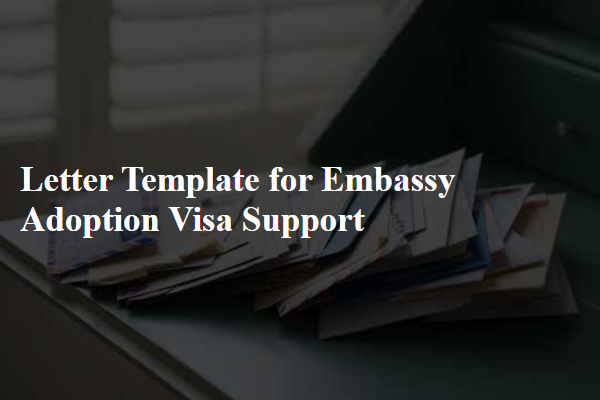
Applicant's personal information
The adoption visa support process for prospective parents typically involves extensive documentation. Key elements include the applicant's personal information, such as full name (as per legal documents), date of birth (providing a chronological context), current residency (including detailed address), and nationality (indicating citizenship status). Occupation details (evidence of financial stability) and marital status (if applicable, showing family structure) also form critical components. Furthermore, background checks (criminal and financial) may be required to ensure a safe environment for the child. This personal information serves as foundational evidence for the adoption process, aligning with international adoption guidelines set forth by organizations like the Hague Convention.
Child's adoption details
The adoption process for a child typically involves various critical components, including the child's identity, legal documents, and adoption agency details. A successful adoption narrative often begins with the child's background information, like the name, age, and nationality of the child being adopted, which is essential for the embassy's record-keeping and legal processes. Furthermore, necessary legal documents should include the adoption decree, which is a court order that finalizes the child's adoption, and any pertinent medical records describing the child's health status. In addition to this, details about the adoption agency, including its name, registration number, and location, should be provided to affirm the legitimacy and credibility of the adoption process. This information is crucial for the embassy to process an adoption visa, facilitating the child's transition to a new home in a foreign country.
Embassy contact information
Embassy adoption visa support involves critical documentation and communication with specific representatives. The Embassy of [Country Name] in [City Name] serves as the primary contact point for adoption cases, guiding prospective adoptive parents through the complex visa process. Key representatives include the Consular Officer, responsible for processing visa applications and conducting interviews, and the Adoption Coordinator, who specializes in adoption-related inquiries. Important documents required for the process often include the Form DS-260 (Immigrant Visa Application), approved adoption petition, and proof of the child's eligibility for adoption. Timelines for processing can vary, frequently taking several months, depending on the specific circumstances surrounding each case and the embassy's current workload. Adopting parents should maintain open communication with the embassy to ensure compliance with legal requirements and updates on case status.
Statement of purpose and relationship
Embassy adoption visa support requires a clear statement of purpose and relationship details. For instance, adoptive parents (individuals from countries like the United States) often seek to establish their motivation for adopting a child (from nations such as Ethiopia or China). The statement typically includes expressions of love, commitment, and the desire to provide a stable environment for the child. It may detail the adoptive parents' backgrounds, resources, and readiness to nurture a child, including information about their home, community, and educational plans. Additionally, the letter highlights the emotional bond established with the child (like regular communication or visits) and the legal processes already completed to ensure a smooth transition into a family unit. Relevant adoption agency details (including the registration number with the Hague Convention) and references support their credibility and intention to fulfill all obligations associated with the adoption process.
Required documents and enclosures
The adoption visa process necessitates comprehensive documentation to ensure compliance with legal and procedural standards. Essential documents include the completed visa application form (Form DS-260 for the U.S. or corresponding form for other countries), valid passport (with at least six months of validity remaining), and proof of legal adoption (such as court orders and adoption decrees). Additional requirements often encompass financial documentation (such as proof of income or bank statements), medical examinations (conducted by an authorized physician), and background checks (verifying the adoptive parents' criminal history). Supporting documents might also include photographs of the adoptive family, reference letters from social workers or community members, and evidence of communication with the adoption agency. Each embassy may have specific mandates so it's crucial to review the guidelines provided by the respective consulate or embassy, such as the U.S. Department of State for families adopting from foreign countries.

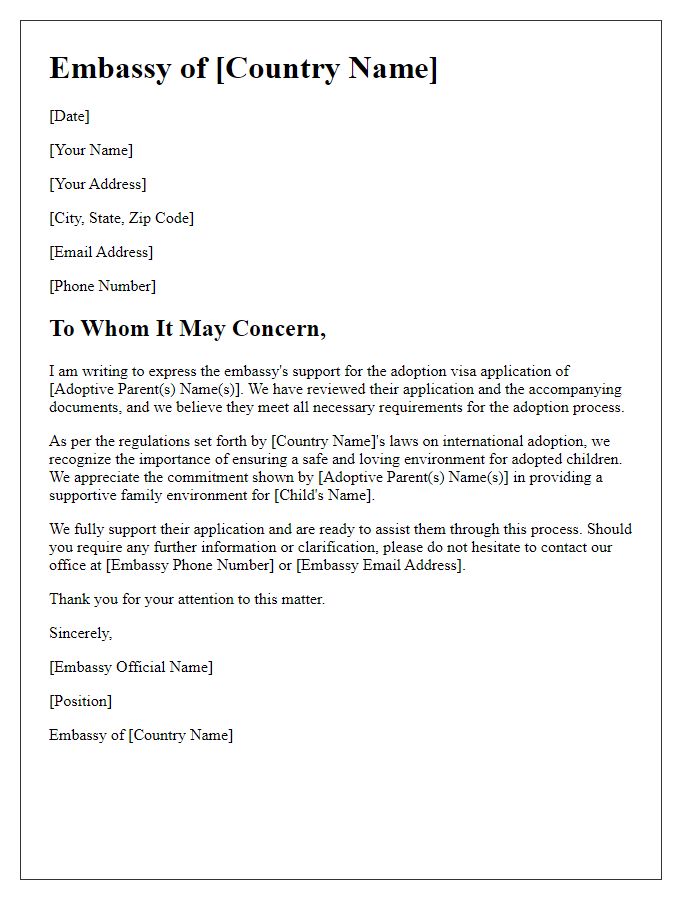
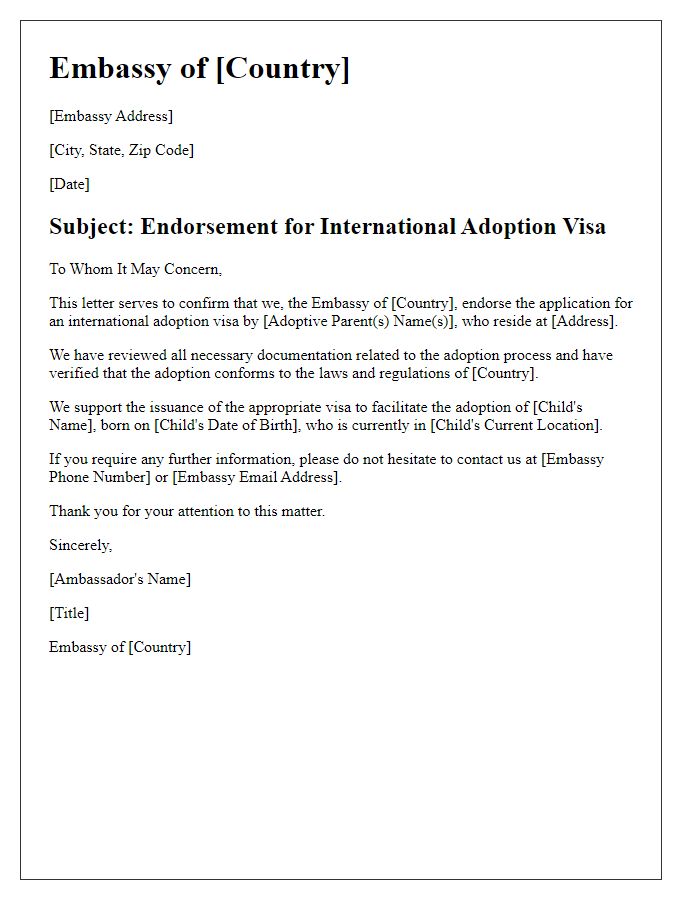
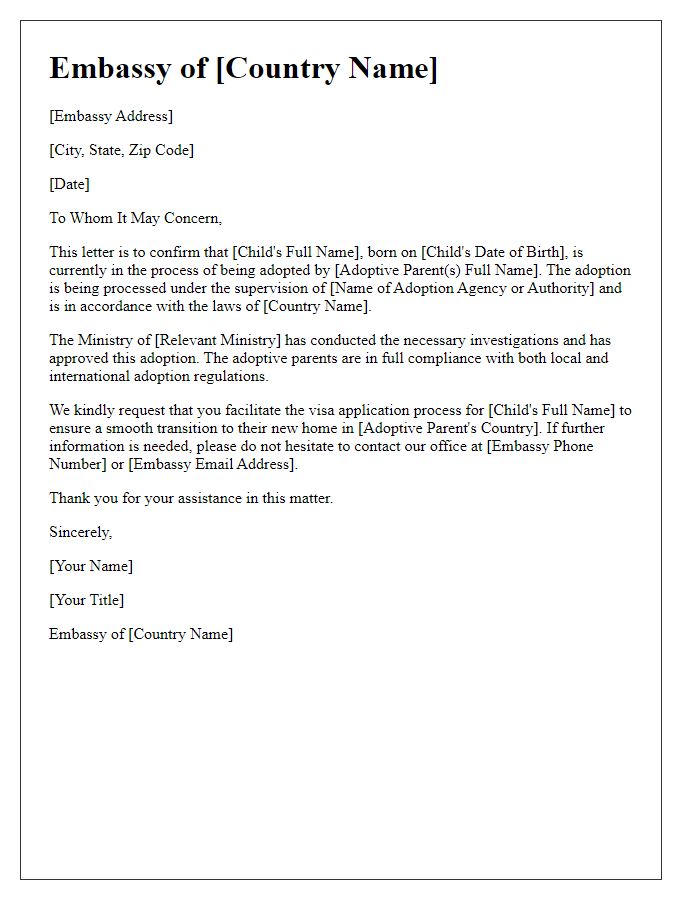
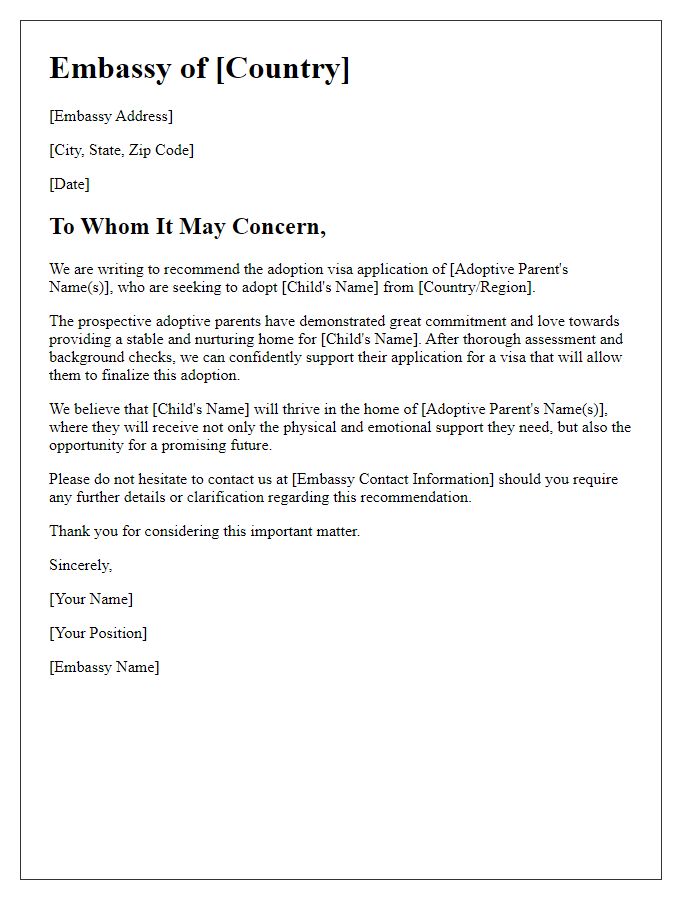
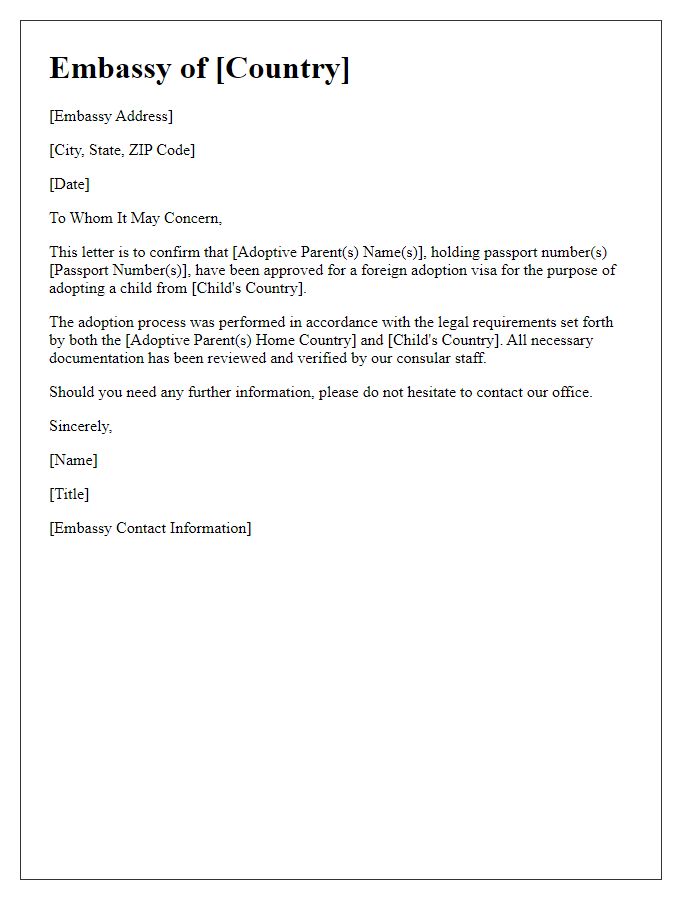
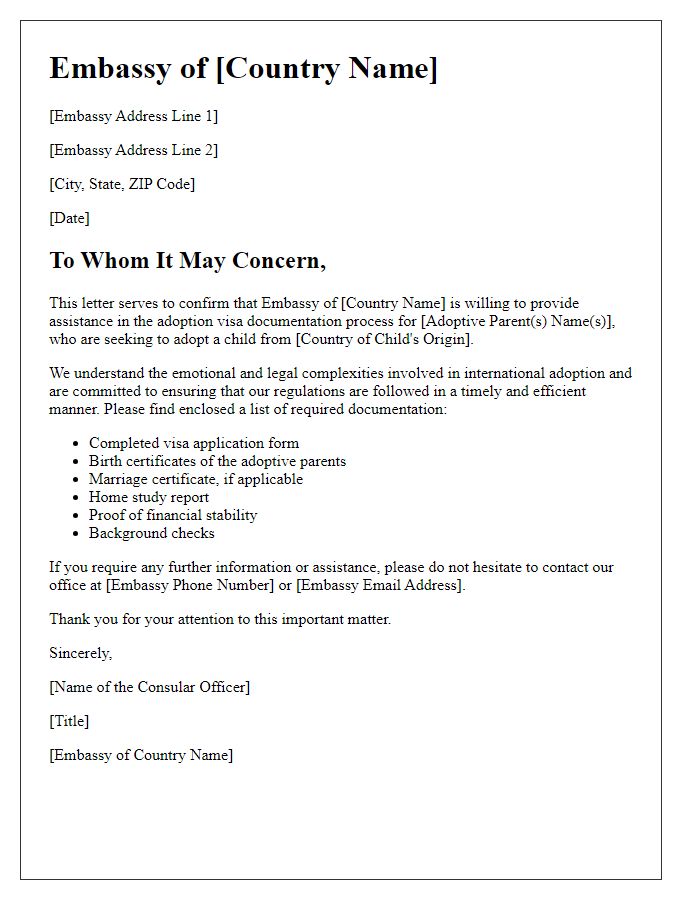
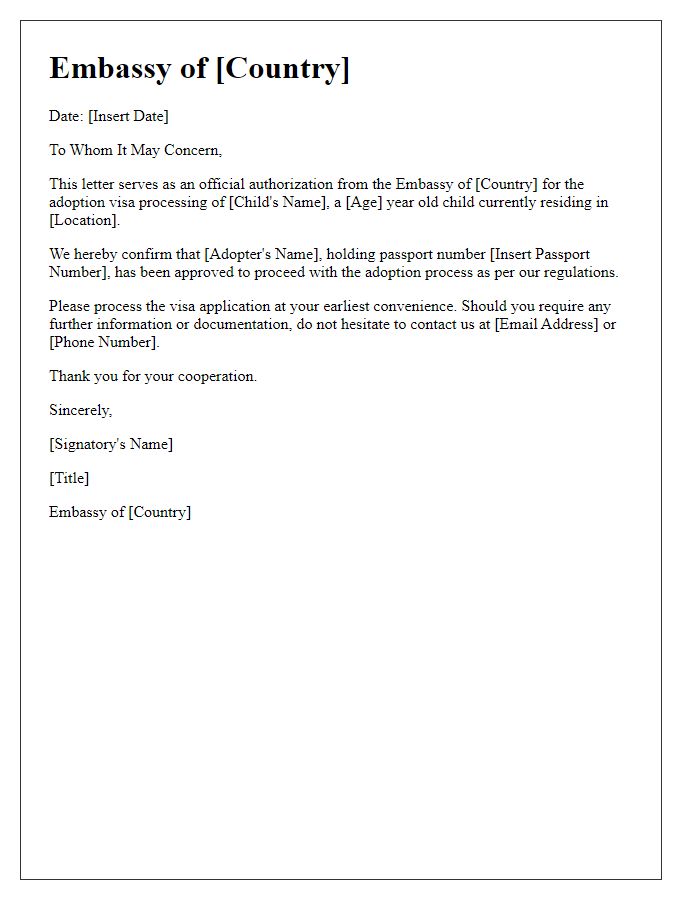
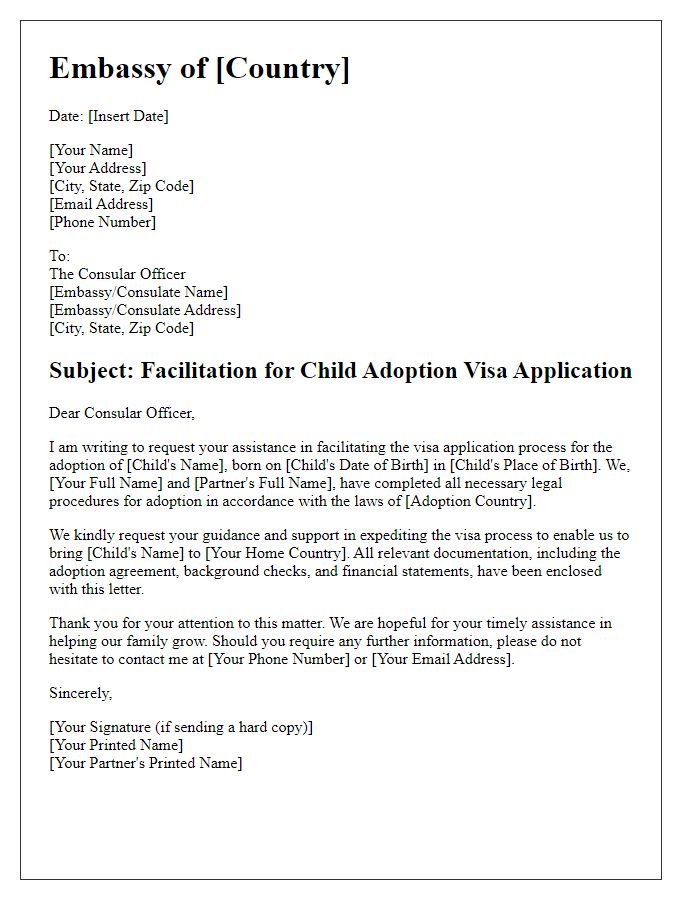
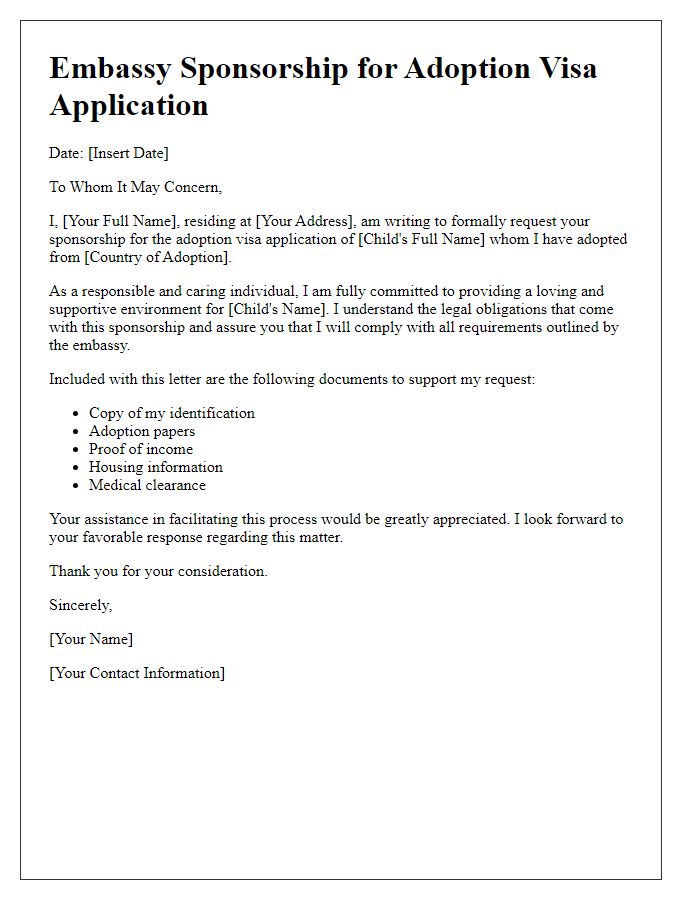
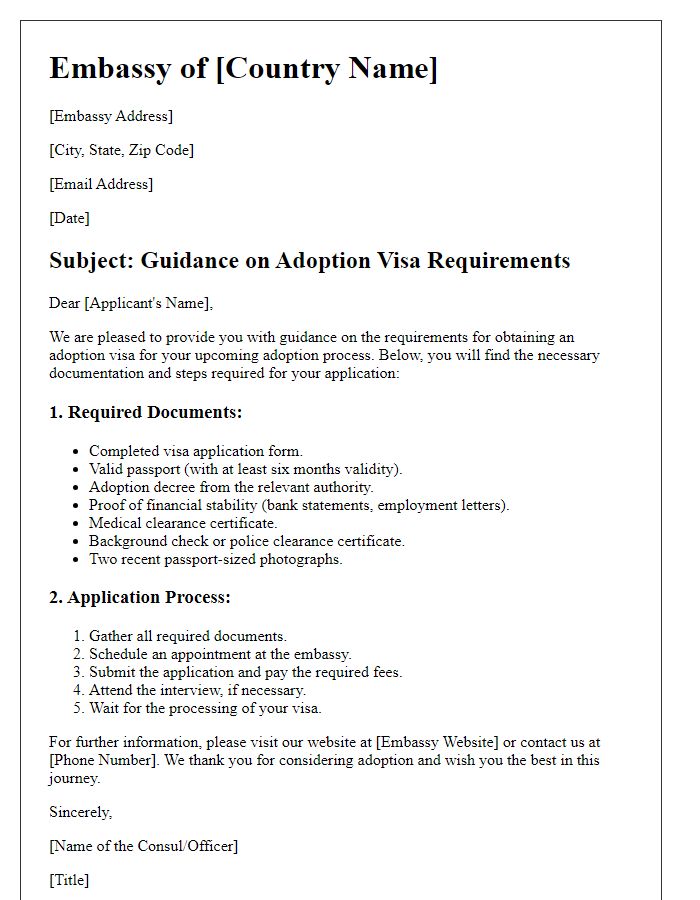

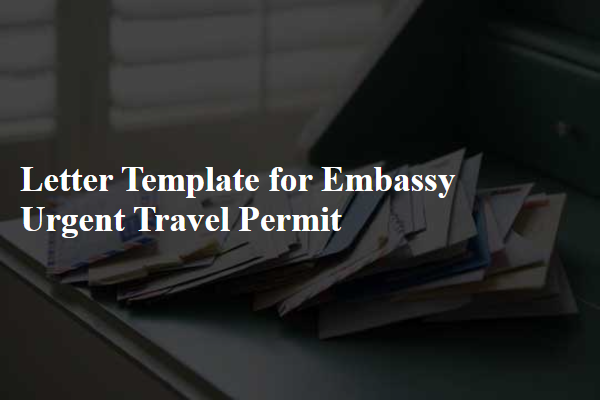
Comments